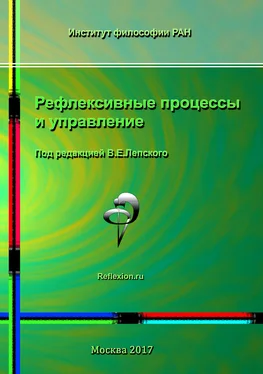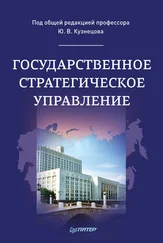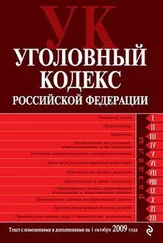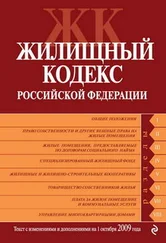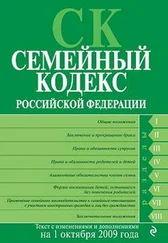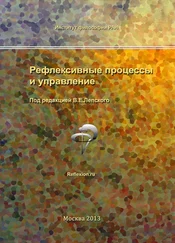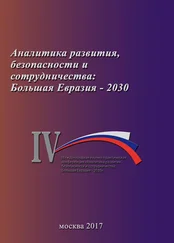Keywords : Systems thinking, Cybernetics, Big Data analytics, Learning processes, Viable system model, Viplan methodology
1. Introduction
1.1 Problem situation. Current information technology, particularly social media such as Facebook, Goggle, LinkedIn and many more, are hugely increasing data flows and interactions in society and organisations. Algorithms and artificial intelligence or BDA are dealing with the related data, suggesting that they can handle these data flows in the benefit of people‘s decisions and actions. We believe that this perception of increased observational and action capacity needs revision. BDA have a great capacity to deal with data and articulate options but these new capabilities may increase people‘s illusion that they have an improved understanding of their relevant situations and also an increased capacity to deal with them effectively. We want to test and improve these perceptions and argue, in conceptual and methodological terms, that there are dangers in an unrestricted data management driven by sophisticated BDA; what drawbacks are they posing to aspects such as organisational effectiveness, individual autonomy, privacy and fairness.
The organisation helps people to learn and understand the state and dynamics in the environment, as well as state and dynamics within the system. With accessibility to high volumes of data, the personal capacity to understand and react upon the data may be overpowered. Prior to the BDA approach, using the business intelligence, the means of reducing variety was mostly focused on financial results and summarisation was used to provide views on the higher levels in the organisation (Kimball, 2002). Based on this lack of variety, business intelligence had serious problems, especially it lacked understanding of the implications of high-level decisions, and focusedmostly on the financial aspects of the business it measured.
The BDA potentials to disrupt the existing organisations are undisputed. It is though important to use systems thinking to maximise the positive impact and to thoroughly understand the implications it has on the other players in the system. It should support the cooperation and not only provide short-term competitive advantage to system performance.
The foci of our arguments are first, on the relationships of people and organisations with their environmental agents and second, on their multiple interactions, which are responsible for self-organising processes. Today these relationships and interactions are increasingly mediated by BDA and therefore it is necessary to explore:
1) The extent to which BDA is supporting individual and organisational learning through its contribution to increasing effective relationships and interactions. This requires revision of relationships and interaction among actors within an organisation. In this purpose we focus on varied issues of concern in business organisations. Often these organisations support relationships that increase the chances of hierarchical structures and therefore of inhibited learning throughout them;they are driven by fragmentation, inadequate coordination of actions and lack of trust. How can BDA overcome these shortcomings and therefore increase cohesion and the organisation's dynamic performance?
2) The extent to which people in organisations, supported by BDA, can develop effective interactions and relationships with environmental agents. For particular issues of concern we explore both 'operational interactions' with customers and 'problematic interactions' with multiple agents to increase opportunities for innovation and adaptability. We discuss for these issue technologically mediated interactions and relationships that increase individual and organisational competencies and therefore their learning.
1.1.1 Methodology. In this paper we use the Viable System Model (Beer, 1979, 1981, 1985) – VSM- and the VIPLAN Methodology (Espejo, 1993; Espejo & Reyes, 2011); they help us to discuss the braiding of organisational learning (Espejo, Schuhmann, Schwaninger, & Bilello, 1996) and technological processes. We support model and methodology by a systemic epistemology, which highlights holism, in particular the relevance of communications, interactions and complexity. More specifically we adapt the Viplan Methodology (Espejo & Reyes, 2011) to the use of BDA.
The emphasis is in the interactions and relationships of agents at multiple levels, from the global to the local. We use a systemic epistemology that highlights structural determinism in organisations and structural coupling between agents and actors (Maturana & Varela, 1992). Structural determinism highlights the autonomy of organisational systems; it is the closure of their structures that determines which environmental data makes sense within the organisation. Structural coupling highlights the history of communications and interactions between agents and actors leading to the structural congruence between them.
Big data is produced by the huge number of transactions natural to all situations. The problem is their management. Crucially to focus on relational aspects we use Ashby's Law of Requisite Variety (Ashby, 1964)and the ideas of variety operators to balance performance at satisfactory levels. Dealing with data requires considering how they are absorbed by the structures affected by them, as well as their responses. It is in absorption that the structural, ethical and technical issues of big data and people come together.
It is not always the case that an enterprise shows the property of closure necessary for a desirable autonomous behaviour in its environmental context. To improve its structure we focus on processes of individual and organisational learning. Individual learning is increasing their capacity to take effective action and organisational learning is increasing effective action in their environments. Among several factors restricting this learning are poor models of these environmental situations. "Every good regulator of a system must be a model of that system" (Conant & Ashby, 1970). But it is not useful to be a good regulator of a poorly structured situation, hence the duality of structure and data models that we explore in this paper. Overcoming structural fragmentation helps making data more meaningful to those affected by the contextual changes.
2. Background
Multiple models explain organisational learning processes. Koskinen (Koskinen, 2012)for instance explores the potential of process thinking to open up new ways to understand organizational learning, particularly through problem absorption within problem solving. In organizations existing rules and norms are usually used as the basis for solving new problems even when this means stretching those rules. Such absorption of new problems by rules reduces the need to explore and develop new solutions and to encode those solutions into new rules.(Argote & Miron-Spektor, 2011) propose a theoretic framework for analysing organizational learning. According to the framework, organizational experience interacts with the latent component and an active component of contextsthrough which learning occurs. However, most of these models regard learning separately from the other processes in the organisation. We offer amore holistic perspective as provided by the VSM and Viplan methodologyl(Beer, 1981; Espejo, Bowling, & Hoverstadt, 1999)
2.1 Big DataAnalytics (BDA). Even though the technical aspect of big data generation calls for potent data tools, capable of receiving, storing, understanding and reacting to the vast quantities of big data, especially the variety part hides a dark secret. Digital recording of real world transactions only create data models,partially capable of reflecting their complexity. Though we may agree that capturing unstructured data has the potential of improving our perception of an event, we can only speculate about the effect of storing unstructured, loosely connected event data,to our understanding of its complex dynamics.Organisational and individual learning are important to overcome this uncertainty.
Читать дальше
